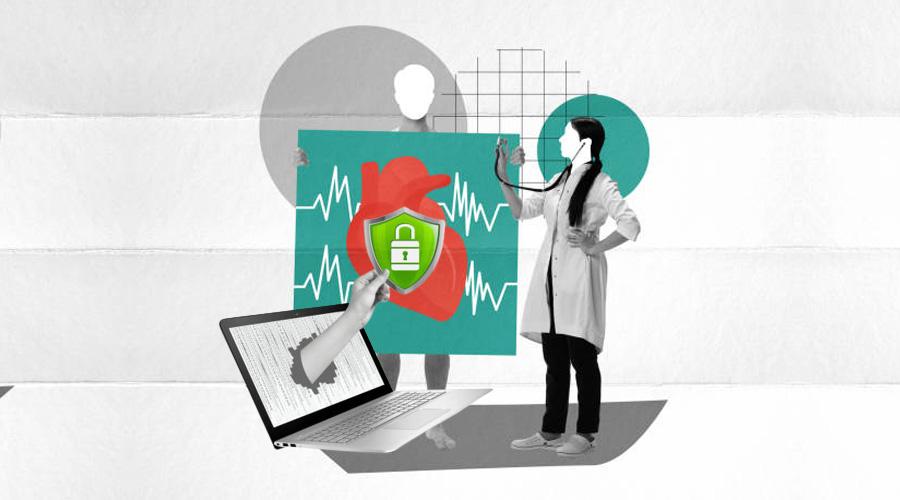 Transforming healthcare with the power of blockchain for enhanced privacy and security
Transforming healthcare with the power of blockchain for enhanced privacy and security
Welcome to the forefront of healthcare innovation! In this rapidly evolving landscape, the integration of blockchain technology is revolutionizing how patient data is managed, privacy is upheld, and security is fortified.
With its decentralized and immutable nature, blockchain presents a game-changing paradigm, offering unparalleled trust and transparency to safeguard sensitive patient information. This transformative approach ensures data integrity, thwarting unauthorized access or tampering attempts. Moreover, blockchain’s seamless interoperability further streamlines medical processes, promoting efficient collaboration among healthcare providers. In this article, we delve into the fascinating realm of “Blockchain for Healthcare Privacy and Security,” where cutting-edge solutions are reshaping the future of medical care.
Understanding Blockchain and its Key Features
Blockchain is a distributed ledger technology operating on a decentralized computer network. Unlike traditional databases, where a central authority controls the data, blockchain stores information in a series of blocks linked together cryptographically.
The key features of blockchain that make it ideal for healthcare applications are:
1. Decentralization
Blockchain operates on a decentralized network, meaning no single control point exists. This eliminates the need for intermediaries, such as third-party clearinghouses or data custodians, thereby reducing administrative complexities and costs while enhancing data security.
2. Immutability
Once data is recorded on a blockchain, it becomes immutable. This means that once a block is added to the chain, it cannot be altered or deleted. This feature ensures the integrity of medical records and protects them from tampering, providing a robust audit trail.
3. Security and Privacy
Blockchain employs advanced cryptographic techniques to secure data. Each participant on the network is assigned a unique cryptographic key, and transactions can only be accessed with the corresponding key.
Enhancing Healthcare Privacy with Blockchain
Data breaches and privacy concerns are pressing issues in the healthcare sector. Introducing blockchain technology can significantly mitigate these risks and enhance patient privacy. Let’s explore how blockchain achieves this:
1. Identity Management
Blockchain enables a robust identity management system where patients control their personal information. Instead of relying on centralized repositories vulnerable to breaches, patient identities and permissions are stored on the blockchain.
2. Health Data Ownership
In the traditional healthcare system, patient data is scattered across various providers and organizations, making it challenging for patients to have a holistic view of their health history. With blockchain, patients can securely store their health data in a single, encrypted location.
3. Transparent Data Sharing
Blockchain’s decentralized nature promotes transparency in data sharing. Patients, healthcare providers, and other stakeholders can access the same information, reducing information asymmetry and facilitating better-informed decisions.
Securing Medical Records with Blockchain
In addition to enhancing privacy, blockchain also addresses security challenges in medical recordkeeping. Here’s how it achieves this:
1. Data Integrity and Authenticity
Traditional databases are susceptible to data manipulation and unauthorized access. In contrast, blockchain’s immutability ensures that medical records are tamper-proof and maintain their original integrity.
2. Encrypted Data Storage
Blockchain employs advanced encryption algorithms to secure data storage. Patient records are encrypted and stored in blocks; access to this information requires the appropriate cryptographic keys.
3. Cybersecurity Measures
Blockchain networks incorporate robust cybersecurity measures to protect against hacking and malicious activities. The decentralized nature of blockchain reduces the likelihood of successful cyberattacks, as there is no central point of vulnerability for hackers to exploit.
Future Implications and Challenges
The adoption of blockchain technology in healthcare is still in its early stages, but its potential to transform the industry is immense. As blockchain becomes more mainstream, several challenges need to be addressed:
1. Regulatory Compliance
Healthcare is heavily regulated to protect patient rights and ensure data privacy. Integrating blockchain technology must comply with existing regulations and may require the development of new frameworks tailored to this innovative approach.
2. Scalability
As the volume of healthcare data continues to grow, scalability becomes a critical concern. Blockchain networks must be able to handle a massive number of transactions without compromising speed and efficiency.
3. Data Standardization
Standardizing healthcare data formats is essential for seamless data exchange and interoperability. Blockchain solutions should incorporate standardized data models to ensure compatibility between different systems.




